How your emotions influence decision making
Decision making is traditionally viewed as a rational process where reason calculates the best way to achieve the goal. Investigations from different areas of cognitive science have shown that human decisions and actions are much more influenced by intuition and emotional responses then it was previously thought.
Research in recent decades reveals that emotions constitute potent, pervasive, predictable, sometimes harmful and sometimes beneficial drivers of decision making.
According to Herbert Simon, American Nobel Laureate scientist, “In order to have anything like a complete theory of human rationality, we have to understand what role emotion plays in it.” As Dr. Simon and others have pointed out, emotions influence, skew or sometimes completely determine the outcome of a large number of decisions we are confronted with in a day.
Emotions aren’t mystical signals; they come from expertise, experience, and rapid information processing. It works like this: You receive a stimuli that.creates an emotion. The emotion releases a specific set of chemicals and hormones rom the brain, which result in feelings. In other words, your emotions impact your decision-making process by creating certain feelings. Those feelings, wether you realize it or not, can influence your cognition positively or negatively.
It’s not a matter of rational vs emotional decision making. We need both. Dr. Antonio Damasio, a neurologist known for his work on the relationship between emotions and decision making, suggests that emotions may be fundamental to dealing with equal options and decisions that do not have a clear rational basis for choosing. In his 1994 book, Descartes' Error: Emotion, Reason, and the Human Brain, Damasio shows how patients with prefrontal cortical damage cannot create the emotions necessary for effective decision-making.
In one example, his story of Elliot describes how, without emotion, he could not make simple choices, such as which color socks to wear. This suggests that at the point of selection, emotions may be key for choosing. Even when we believe they are rational decisions, the actual choice may in reality be based on emotion.
Studies of people with ventromedial injuries, the area of the brain active in emotions, revealed a distinct difference in response to questions that present a moral dilemma of saving many people at the expense of one innocent. This suggests an ongoing tension between the rational cost-benefit calculations and the instinctive emotional decision making parts of our mind, particularly for moral judgments.
Let’s take a look at advantages and disadvantages of emotional decision making.
Recent research has revealed a number of positive elements of emotions in decision making.
A totally emotional decision is very fast in comparison to a rational decision. This is reactive (and largely subconscious) and can be useful when faced with immediate danger, or in decisions of minimal significance.
Some studies suggest an emotional insistence to respect the life of another human being.
Emotions may provide a way for coding and compacting experience, enabling fast response selection. This may point to why expert's "gut" level decisions have high accuracy rates.
Emotions are possible signals from the subconscious that provide information about what we really choose.
Decisions that start with logic may need emotions to enable the final selection, particularly when confronted with near equal options.
Individuals care about the emotional features of decision options.
Emotions often drive us in directions conflicting with self-interest.
Emotional decision making can also come with a number of negatives.
We make quick decisions without knowing why, and then create rational reasons to justify a poor emotional decision.
Intensity of emotions can override rational decision making in cases where it is clearly needed.
Immediate and unrelated emotions can create mistakes by distorting and creating bias in judgments. In some cases this can lead to unexpected and reckless action.
Projected emotions can lead to errors because people are subject to systemic inaccuracy about how they will feel in the future.
Much research has been conducted on the various impacts of emotion on decision-making. Studies indicate the complexity and breadth of those impacts. Listed below are some examples of their results as listed by
Wikipedia.
Decision-makers who were made to consider safety concerns that induced negative emotions when deciding which car to purchase, were more likely to "choose not to choose," or to stick with the status quo. Study participants who experienced "frustrated anger" were more likely to choose a high risk, high reward option in a lottery – a choice the authors categorize as "self-defeating."
"Fearful people made pessimistic judgments of future events whereas angry people made optimistic judgements.”
Study participants who had been induced to feel sad were likely to set a lower selling price for an item they were asked to sell; the researchers suggest that selling the item would bring about a change in the participants’ circumstances and thus perhaps a positive change in mood.
Participants with "normal emotion processing" were engaged in a card-drawing task. When drawing from "dangerous decks" and consequently experiencing losses and the associated negative emotions, they subsequently made safer and more lucrative choices. Participants with brain damage that had left them unable to experience such emotional responses, did not change their behavior in this way.
Decision making solutions must address emotional and rational elements of our being
Since there appears to be no mood that would put you in the perfect frame of mind for, well, making up your mind. What’s a decision-maker to do? The best bet might be to accept that you’re going to have emotions, but to try to keep them from highjacking your thought process.
How to best be able to take advantage of both emotions and rational thought?
Make yourself wait to react—though this can be hard when you have the perfect email retort burning through your drafts folder. You could also try to reappraise the situation, for example by viewing a layoff as a chance to finally pursue a lifelong goal, rather than as a crushing defeat.
Listen to both your head and your emotions. Emotions are usually trying to make you aware of something you should take into consideration while making a decision. Take anger, for example. Anger makes people more likely to take risks and to minimize how dangerous those risks will be. But it also might be trying to tell you that you are being abused and you need to do something about it. If you listen to the anger, but use your head to find a way to be assertive without being abrasive, you’ll have a better chance and being heard.
Unrelated emotions also have influence. Make sure that your factor in current emotional states due to unrelated factors –such as emotions arising from an unrelated event, or the weather, or your depressed mood due to the pandemic– don’t color your evaluation of the expected outcomes.
Make a rubric takes into consideration every element of a decision that’s important to you. Many years ago Kurt Lewin called that process Force-Field Analysis and suggested to make a list of drivers and resisters. Then assign a value to each of them and tally the results.
For example, let’s suppose you and your spouse want to buy a house and are deciding between two houses. Your list could include: number of bedrooms, the price, how the neighborhood makes you feel, and the quality of the local schools.
Next, assign each factor a weight—2 or 5 and so on—so that each factor could add up to 10. Then score each option, add the weight of each house based on each dimension and compare it to what the total would be if you had assigned a 10 to everything. You should end up with a score that reflects the total, impartial assessment of each house’s relative merit. Just make sure you list not only rational options, but also your possible emotional reaction to those options. I think you get the idea.
Remember. . .
In the history of studies on fairness-related decision making, the hypothesis has changed from viewing responders as completely rational with no influence from emotion to regarding both emotion and cognition as important factors. Many studies have revealed that emotion plays an important role in decision making, especially in fairness-related decision making.
As usual, it’s not a matter of “either-or”, but more like we need both for balancing each other. Happy decision-making!!
If you want to learn how to manage negative emotions so that you can have a clearer head for making decisions, check Dr. Ada’s How to be in charge of your brain and emotions.

